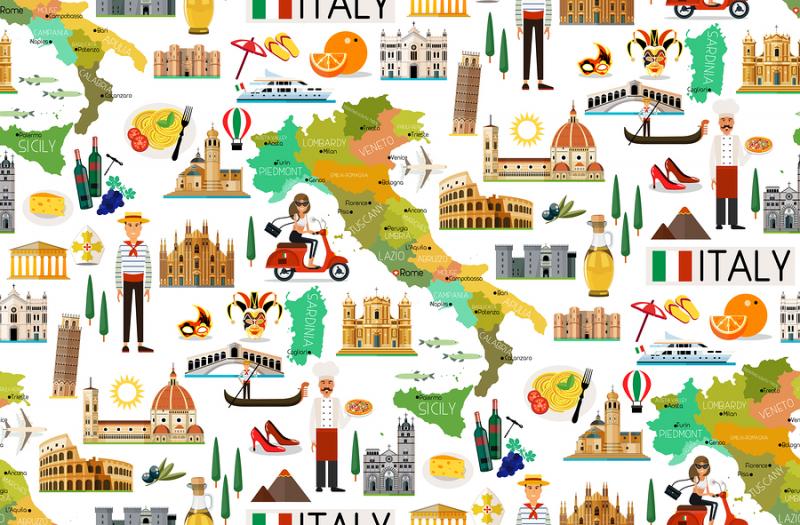If you’d like to say ‘Florence is more beautiful than Venice’ or ‘Neapolitan pizza is nicer than Roman pizza’ or ‘The sea is bluer in Sardinia than in Puglia’, then you will need to know how to use comparative adjectives in Italian. I comparativi (comparatives) can express maggioranza (majority) and minoranza (minority), for example:
Roma è più grande di Milano - Roma is bigger than Milan (comparativo di maggioranza)
Torino è più piccola di Napoli - Turin is smaller than Naples (comparitivo di minoranza)
Maggioranza and Minoranza
The grammar rule is:
più / meno + adjective + di / che
The choice of whether to use ‘di’ or ‘che’ can prove a difficult one to students of Italian. Here are some examples using both:
Di
Il ristorante è più formale della pizzeria - A restaurant is more formal than a pizzeria
Al supermercato la birra costa meno del vino - At the supermarket beer costs less than wine
Che
È più facile leggere che parlare in Italian - It is easier to read than speak Italian
La vita è meno cara a Milano che a Palermo
Here are some rules which will help you to choose whether to use ‘di’ or ‘che’ in your comparisons.
Che
You use ‘che’ when comparing two:
• Adjectives
Il sugo è più salato che piccante - The sauce is more salty than spicy
• Infinitives
Ballare è più energetico che camminare - Dancing is more energetic than walking
• Prepositions
Mi sono divertito di più alla festa che al matrimonio - I had more fun at the party than at the wedding
You also use ‘che’ when comparing one noun using two adjectives:
Il libro è più interessante che commovente - The book is more interesting than touching
Mario è più intelligente che studioso - Mario is more intelligent than hardworking
Di
You use ‘di’ when comparing two:
• Separate nouns
Cristina è più forte di Silvia - Cristina is stronger than Silvia
• Pronouns
Tu vai in Italia più di me - You go to Italy more than me
You also use ‘di’ when:
• It is followed by a number
Quella chiesa ha più di 200 anni - That church is more than 200 years old
• Using the words "più/meno di quanto+ verb" or "più/meno di quel che+ verb"
Il biglietto costa meno di quanto pensassi - The ticket costs less than I thought
Mi piace studiare l’italiano più di quel che mi aspetassi - I like studying Italian more than I expected
Comparatives of maggioranza and minoranza can also be strengthened or weakened by using an adverb such as molto, poco, troppo, un po':
Verona è un po’ più grande di Padova - Veronia is a bit bigger than Padua
La Sicilia è molto meno fredda della Lombardia - Sicily is much less cold than Lombardy
Uguaglianza
Comparative adjectives can also express uguaglianza (equality), for example:
Siena è così bella come Parma - Siena is as beautiful as Parma
Viaggiare in barca è tanto divertente quanto viaggiare in aereo - Travelling by boat is as fun as travelling by plane
The grammar rule is:
tanto / così (although you can omit this first part) + adjective + quanto / come
Special comparatives
There are some irregular comparatives, see the most common here:
buono / migliore - good / better
cattivo / peggiore - bad / worse
grande / maggiore - big / bigger
piccolo / minore - small / smaller
Questo vino è peggiore dell’altro - This wine is worse than the other one
Il tuo italiano è migliore del mio - Your Italian is better than mine













